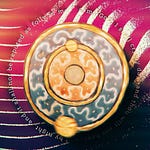I have hated the assembly of the malignant; and with the wicked I will not sit. (Psalm 25:5 DR)
In this fallen world in which we are constantly surrounded by great evils, our love for the good is often necessarily marked by an equally intense loathing for evil. Sadly, the reverse is often the case, as a love for evil is accompanied by a hatred for the good.
There is somewhat of a disjunction here, for evil and good do not exist in a Manichean duality. Evil is not the ontological opposite of good, as if it itself is a substantial reality eternally in opposition to good. Evil only exists, as it were, as parasitic upon the good. It is in reality the absence of a good that should be, the privation of good in theological terms. That is not to say, of course, that we cannot do evil or that sin is not something we can commit.
Instead, it is to acknowledge that sin is the diminution of the good, which is why we are tempted by it in the first place. We see what we perceive as a good and desire it, but the sin occurs in the disorder of that desire or of its attainment. The sins of the flesh, for example, are predicated on a good, by which God provided for the propagation of the species, but this good is only attained within holy matrimony. Every other use is a disordered use of this good, which turns the good, so to speak, into an evil, although it is not the good itself which becomes evil but rather the disordered use which is.
It is due to the wounds of Original Sin that we feel within ourselves this conflict between good and evil that we must choose between, which is why in this vale of tears our choice for the good has a concomitant rejection of evil. The saints in heaven, on the other hand, do not face this choice, but have their wills eternally freed to choose the good simpliciter, without reference to a rejection of an evil. That is, the saints are not constantly faced with temptations to evil or the choice between good and evil, because they have been united to the Good itself in the Beatific Vision. In God Himself there is no darkness (cf. 1 John 1:5), and thus the only choice is for light and goodness and truth; in other words, for God Himself. As St. John sees in his vision in the Apocalypse:
There shall not enter into it any thing defiled, or that worketh abomination or maketh a lie, but they that are written in the book of life of the Lamb. (Apocalypse 21:27 DR)
As the Psalmist continues his inventory of his interior motivations, he creates a chiasm of sorts in conjunction with the previous passage to fill out, as it were, his rejection of the pagans and their idolatrous ways. We can see this below:
A. I have not sat with the council of vanity
B. Neither will I go in with the doers of unjust things
B1. I have hated the assembly of the malignant
A1. And with the wicked I will not sit
He begins in A with not sitting with the council of vanity, and ends in A1 with not siting with the wicked. This sitting, as was seen earlier, signifies an acceptance or compliance or complacency with these evil-doers. And as the parallelism brings out, he asserts that he both has not sat with them in the past nor will in the future, both of these refusals predicated on his will to be well-pleased with the truth of the Lord, as seen in verse 3.
There is also potentially an intensification of the wickedness of those whom he is rejecting, as Cassiodorus brings out:
Just as he said earlier that he had not sat in the council of vanity, so now he claims that he does not sit with the wicked, for both must be utterly forsaken. The vain and the wicked are different from each other. The vain are those concerned with transient interests who spend their time in empty discourse; but the wicked are the heretics who seek to devalue the divine Scriptures with treacherous questions. As the apostle Peter says: Wresting them to their own destruction and perdition. So he rightly warns that both groups be avoided, because the first loves empty things, and the second implants weapons of subversion. (Cassiodorus, Explanation of the Psalms, 25.5., ACCS.)
This is also borne out in the parallelism between B and B1, for in B he chooses to not participate with evildoers in their deeds, and in B1 hates even their gatherings together. B1 also carries over from A, in that the council from A is paralleled and expanded into the assembly of the malignant. The word for “assembly” here in both the Vulgate and St. Jerome’s Hebrew translation is ecclesiam, which in many other places in the Scriptures—including the end of this very Psalm—is translated as “church.”
One could thus see here a false or heretical “church” as opposed to the One True Church, which follows along with Cassiodorus’ interpretation of this text. This is of course brought out by David’s own experience in exile among the Philistines, whose pagan idolatry was ever-present, continually positing a false church over the chosen of the Lord. In the context of the Holy Catholic Church, the council of vanity becomes those who prefer their own vain opinions over what the Lord has revealed through His Church, and the “church” of the wicked are those who, as Cassiodorus explains, devalue the Scriptures with questions not based on a good-faith search for truth but rather as a means to justify their own pretensions and opinions.
This “hatred” that the Psalmist expresses here is odivi in both the Vulgate and Hebrew, from which English derives odium. Odium and hatred are relatively synonymous, but odium in English tends to have the connotation of a repugnance or loathing that is almost pre-rational; that is, a hatred that arises from the apparent quality of the thing itself rather than from a rational determination of its evil or wickedness. It might be compared to how we instinctively recoil from the odor of a skunk without even thinking; it is the quality of the thing itself that provokes instant revulsion.
In a similar manner the Psalmist hates the “church” of the wicked, which brings us back to his previous state of being well-pleased with the truth of the Lord. It is because he has attuned his heart and mind to love the law of the Lord and His truth that any departure from that provokes this response and revulsion within him. The pagans who do not love the truth have no difficulty with their “church,” but the Psalmist to the core of his being is revolted by their assemblies and idolatries.
And the more he loves the truth, the more the disjunction between truth and error becomes apparent. The Vulgate and Old Latin use malignatum for “malignant,” meaning the same as the English cognate, but the St. Jerome’s Hebrew uses pessimorum, which the superlative of malus, meaning that he is describing the worst possible evil.
In other words, those who are malignant are not simply acting wrongly out of ignorance, but rather have chosen to turn good actions toward evil ends. They desire the evils they commit, and have twisted their wills to perceive evil as good and thus good as evil. St. Paul poignantly describes this descent into malignancy:
For the wrath of God is revealed from heaven against all ungodliness and injustice of those men that detain the truth of God in injustice: Because that which is known of God is manifest in them. For God hath manifested it unto them. For the invisible things of him, from the creation of the world, are clearly seen, being understood by the things that are made; his eternal power also, and divinity: so that they are inexcusable. Because that, when they knew God, they have not glorified him as God, or given thanks; but became vain in their thoughts, and their foolish heart was darkened. For professing themselves to be wise, they became fools. And they changed the glory of the incorruptible God into the likeness of the image of a corruptible man, and of birds, and of fourfooted beasts, and of creeping things. (Romans 1:18-23 DR)
It is this intentional idolatry and wickedness that causes the Psalmist to recoil from their assemblies with such repugnancy, for in them he knows that not only will the truth not be found, but it will be twisted and perverted towards evil ends.
In this fallen world the love of truth will require a concomitant hatred of what is false, just as a love of good will provoke a hatred of what is evil. The Psalmist elsewhere prophetically describes our Lord in such terms, which St. Paul employs to demonstrate His divinity:
But to the Son: Thy throne, O God, is for ever and ever: a sceptre of justice is the sceptre of thy kingdom. Thou hast loved justice, and hated iniquity: therefore God, thy God, hath anointed thee with the oil of gladness above thy fellows. (Hebrews 1:8-9 DR)
Again the Psalmist takes up the same theme:
Have I not hated them, O Lord, that hated thee: and pine away because of thy enemies? I have hated them with a perfect hatred: and they are become enemies to me. (Psalm 138:21-22 DR)
We are not, of course, to hate those whom God has made in His image, for—as St. Paul reminds us—our battle is not ultimately against flesh and blood (cf. Ephesians 6:12). Rather, in this vale of tears we war against temptations and vices, against the deceits of the devil (cf. Ephesians 6:11) who prowls around seeking whom he may devour (cf. 1 Peter 5:8). As we come to love the truth of the Lord and His Church, we will have a concomitant hatred for the things of this world, for the allures of sin and the works of darkness.
Our Lord in His life and Passion and death held in contempt all the purported goods of this world, rejecting them all to follow His Father’s will. The Psalmist expresses the same desire, prophetically speaking the words that our Lord would fulfill in His very Incarnation, defeating sin and death and enabling those who follow Him to be raised to new life through Baptism (cf. Romans 6:4) so as to love the good and hate evil:
Let us, then, amend vices of the flesh, dearly beloved, for the sake of beauty of soul, in which there is the image of Christ. I speak the truth, brethren, that if we want to observe all these things, we will also say to the one who is tempting us: Do not persuade me, devil, to defile the image of my God by listening to you. He suffered for me, He was covered with spittle for me, He was struck with blows on the cheek for me, He was scourged for me, He was hung on a cross for me. This the servant of God should say to his tempter: Truly, you are not persuading me to do what you are urging. (Caesarius of Arles, Sermon 238.2., ACCS.)
I found this fun picture of a bear and thought its grumpy face might be good for an animation. In Photoshop I used the Generative AI to generate some different mouth poses, which took way longer than it should have since the robots are apparently being lazy, but I eventually found something that worked.
I basically sequenced the three separate images to create the “talking,” and added in text at various points. At the “heresy” portion I applied some wiggle hold to the position and rotation of the bear and used some colorization and Stretch to animate the background. I finally used Optical Flares from Video CoPilot for the eye bursts.
Enjoy.
I have hated the assembly of the malignant; and with the wicked I will not sit.
(Psalm 25:5 DR)
View a higher quality version of this gif here:










